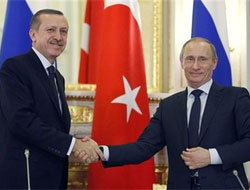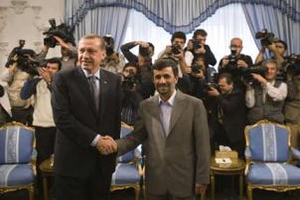The Turkey Triangle: Ankara, Moscow, Tehran
by Richard Weits (vol. 6, no. 7 of the Turkey Analyst)
Turkey has been using its energy and economic links with Russia and Iran to manage their political differences. Turkey’s relations with Russia improved considerably during the past decade, but those with Iran saw only a modest upturn due to enduring differences over regional security and religious-ideological principles. But in the past year, Turkey’s diverging response to the Arab Spring and especially the Syrian Civil War has strained both partnerships. No one talks anymore of an emerging Turkey-Iran-Russia axis in the heart of Eurasia.

Turkey and Tehran: A Cold Peace
by Richard Weits (vol. 6, no. 3 of the Turkey Analyst)
Turkey and Iran continue to resist the strong trends driving them to renew their Cold War of previous decades. Thus far, Turkey and Iran have been able to cooperate on some issues even while they conflict on others. Though they engage in a proxy war in Syria and fight over NATO’s missile defense policies, Turkey and Iran have developed perhaps their closest economic ties in modern history, with Western sanctions squeezing out competitors and allowing Turkey to finally achieve a trade surplus when dealing with Iran after years of massive deficits.





